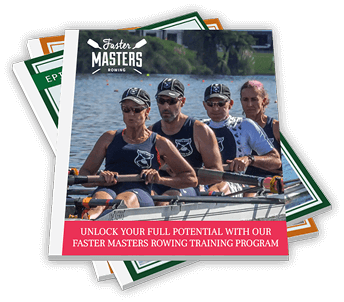Marlene and Rebecca discuss
- Synching schedules. It's the hardest thing for a masters group to figure out.
- Injuries outside training
What is a sporting injury?
Anything that prevents you doing a full training load. And so a strained muscle, a stiff lower back or a hand blister can be part of you failing to complete a training session successfully.
Clearly there are scales and grades of injury - a blister is not the same as a broken leg!
Masters do not get injured more than younger athletes, but we are more likely to be adversely affected for longer and to take longer to return to full training.
What to do if you suspect you have an injury
- Recognise an injury when it happens - feeling a "twinge" while rowing? Stop.
- Get professional medical help if it is warranted - this could be an osteopath, a physiotherapist, a sports masseuse or a medical doctor. You know your body; you will make a good educated guess as to which sort of therapy will help you recover.
- Be mindful during your next training session - Should I be at full strength? Should I cut back? Would a day's rest and stretching / yoga be better for my recovery?
- As a rule of thumb, the earlier you treat your injury the faster it is resolved.
- The amount of time you are off training is equivalent to the amount of time it'll take you to get back to the fitness you had before you were injured. So 2 weeks off from injury equates to 2 weeks of training (after the injury is healed) to build back to your full training volume and recover lost fitness.
Take injuries seriously - training on an injury usually makes it worse, not better.
Timestamps to the show
05:00 This past week - Marlene is a nordic ski coach; she guested on The Science of rowing podcast and will be studying coastal rowing coaching at the Rowing Canada Aviron conference with Guin Batten.
Rebecca has been reviewing the novice masters status in New Zealand and seeking a rule of racing change. You get the behaviours your tolerate in your club.
15:00 Ways to align your crew schedule. Review your lineups, the number of people in your group and seek regular days.
Cliques in clubs can rip clubs apart. Good leadership is essential.
22:00 No wasted water time. This is something we value a lot.
23:30 Marlene has seen a huge increase in injuries from our athletes. when you get injured you have to heal the injury, rehabilitate it and then progress back to training.
These are non-rowing injuries and were caused by carelessness on land. Your body is fragile. It doesn't take much to derail your training.
Accidental injuries when you are in a fatigued state your tissue is fatigued.
26:50 The further you lean away from your body to pick up your boat it puts you at risk of injury. This is relate to poor judgement.
Be mindful of how you move your body.
34:00 The United Nations list of
Craftsbury Common is one of these heritage sites - the Trouble with Harry movie was filmed there.
35:00 Mike asks are there any good videos that can explain all the basics to a never/never rower - someone who has never sculled before?
Rebecca uses these two videos in slow motion for her beginner class. There's no commentary so you can overlay your own interpretation.
https://www.youtube.com/watch?v=882yriTw1VA
https://www.youtube.com/watch?v=gQMaxr-gxp0

